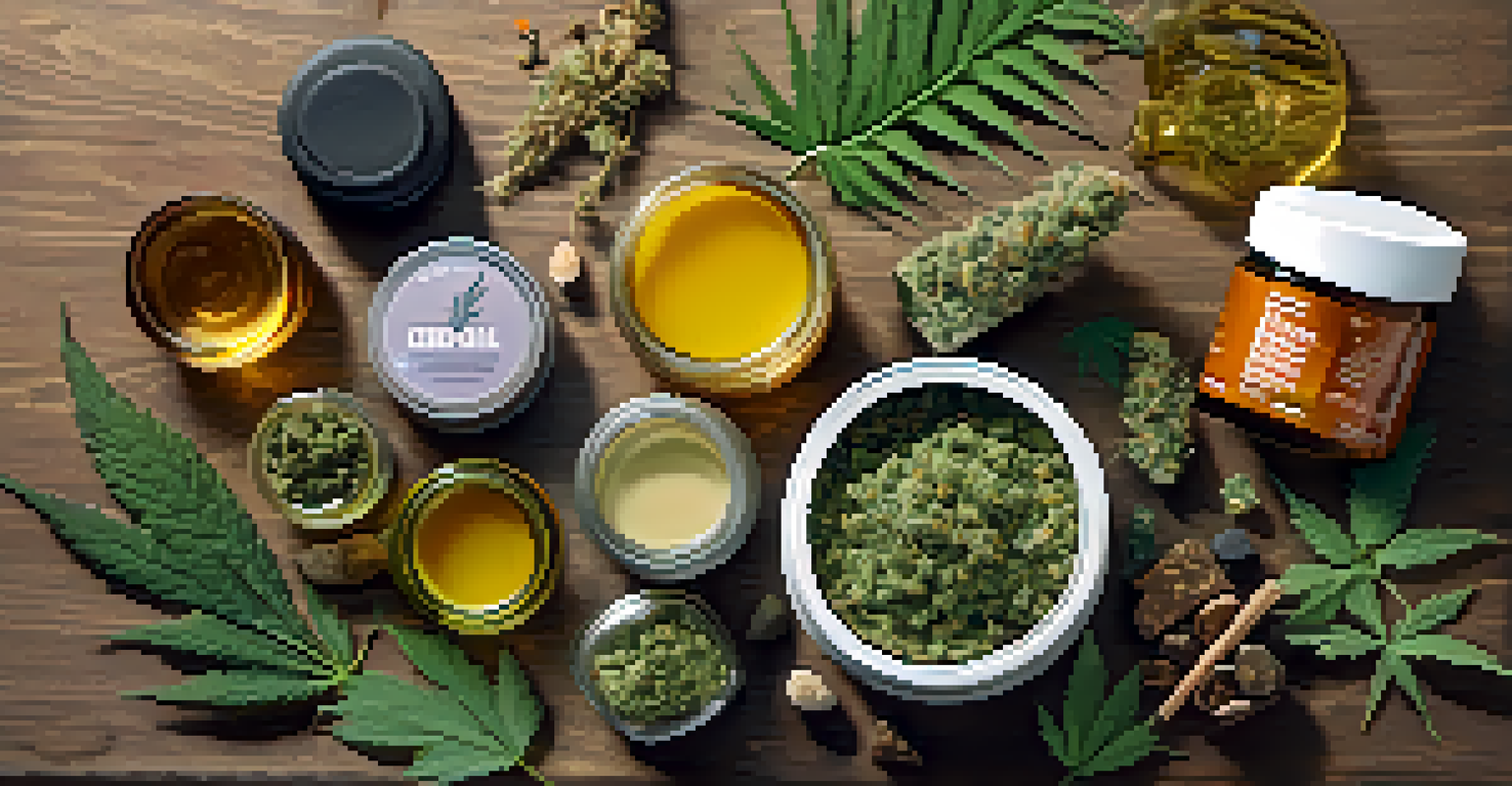Influencer Marketing in the Cannabis Industry Explained

Understanding Influencer Marketing in Cannabis
Influencer marketing is a strategy where brands collaborate with individuals who have a significant following on social media. In the cannabis industry, this approach is particularly effective due to the unique challenges and regulations surrounding the product. Influencers can help brands navigate these hurdles while reaching a targeted audience that trusts their recommendations.
Influencer marketing is about creating genuine relationships between brands and consumers through trusted voices.
Cannabis influencers often create content that resonates with their followers, showcasing products in a relatable way. This authenticity can lead to higher engagement rates compared to traditional advertising methods. As more states legalize cannabis, the demand for genuine and informative content is increasing, making influencers pivotal in this space.
Moreover, influencer partnerships can help normalize cannabis use, breaking down stigma and educating consumers. By sharing personal experiences or insights, influencers can demystify the product, making it more accessible to the average consumer.
Choosing the Right Influencers for Your Brand
Selecting the right influencer is crucial for the success of your marketing campaign. It’s not just about the number of followers; relevance and authenticity are key factors. Brands should look for influencers who genuinely believe in the product and have a history of creating content related to cannabis or wellness.

Micro-influencers, those with smaller but highly engaged followings, can also be a great choice. They often have a more personal connection with their audience, which can lead to higher trust and conversion rates. For instance, a cannabis brand might partner with a local wellness influencer who discusses the benefits of CBD for relaxation.
Influencers Drive Cannabis Engagement
Influencer marketing in the cannabis sector effectively reaches targeted audiences while fostering trust and authenticity.
Additionally, brands should consider the influencer's content style and values. Aligning on brand messaging ensures that the partnership feels organic and resonates with both the influencer's audience and the brand’s target market.
Regulatory Considerations in Cannabis Influencer Marketing
The cannabis industry is highly regulated, and marketing practices vary significantly between regions. Influencers must comply with these regulations to avoid legal issues, which can impact the brand's reputation. For example, some states have strict guidelines on promoting cannabis products, especially to minors.
The power of influencer marketing lies in the authenticity of the content they create and the trust they build with their audience.
Brands should work closely with influencers to ensure that all content adheres to local laws. This may include clear disclaimers about age restrictions or the nature of the product being promoted. Transparency is vital to maintaining trust and credibility.
Staying informed about regulatory changes is equally important. As legislation evolves, so too will the best practices for influencer marketing in the cannabis space. Brands that adapt quickly will have a competitive advantage.
Creating Engaging Content with Influencers
Engaging content is at the heart of successful influencer marketing. Collaborating with influencers allows brands to tap into their creativity and unique storytelling abilities. This partnership can lead to innovative content that highlights the product in a relatable manner, such as tutorials, lifestyle posts, or educational videos.
For instance, an influencer might create a video demonstrating how to use a particular cannabis product in a recipe or wellness routine. This not only showcases the product but also provides value to the audience, increasing the likelihood of engagement and shares.
Choosing Authentic Influencers Matters
Selecting influencers with genuine beliefs and relevant content can significantly enhance the success of cannabis marketing campaigns.
Additionally, leveraging user-generated content can amplify the campaign's reach. Encouraging followers to share their own experiences with the product can create a community feel, further enhancing brand loyalty.
Measuring the Success of Influencer Campaigns
Measuring the effectiveness of influencer marketing campaigns is essential for understanding their impact. Brands should establish clear objectives and key performance indicators (KPIs) before launching a campaign. Common KPIs include engagement rates, reach, conversions, and overall brand awareness.
Analytics tools can provide insights into how content performs across different platforms. For example, tracking clicks on affiliate links or monitoring social media interactions can help brands gauge audience interest and engagement levels.
Regularly reviewing campaign performance allows brands to refine their strategies. By analyzing what works and what doesn’t, businesses can optimize future partnerships and improve their return on investment.
Building Long-term Relationships with Influencers
Building long-term relationships with influencers can be more beneficial than one-off collaborations. When influencers genuinely connect with a brand, their endorsement feels more authentic, leading to stronger audience trust. Over time, these relationships can evolve into brand ambassadorships, where influencers consistently promote the brand.
Regular communication and collaboration on content can help maintain these relationships. Brands should ensure that influencers feel valued and included in the creative process. This not only fosters loyalty but also encourages influencers to invest more into the partnership.
Regulations Shape Marketing Strategies
Staying compliant with regional cannabis regulations is crucial for brands to maintain credibility and navigate the influencer landscape.
Long-term partnerships can also yield deeper insights into consumer preferences, allowing brands to tailor their products and marketing strategies accordingly. The more a brand and influencer collaborate, the better they can understand each other's goals and audience needs.
The Future of Influencer Marketing in the Cannabis Sector
As the cannabis industry continues to grow, the role of influencer marketing is likely to expand. With increasing legalization and acceptance, more influencers are likely to enter the space, providing brands with a broader range of partnership opportunities. This evolution could lead to more diverse content and innovative marketing strategies.
Moreover, technological advancements will play a significant role in shaping the future of influencer marketing. Platforms that facilitate influencer collaborations and analytics will become more sophisticated, enabling brands to make informed decisions and optimize their campaigns effectively.

Ultimately, the future of influencer marketing in the cannabis industry will hinge on authenticity and trust. Brands that prioritize these values while adapting to changes in the market will thrive in this dynamic landscape.